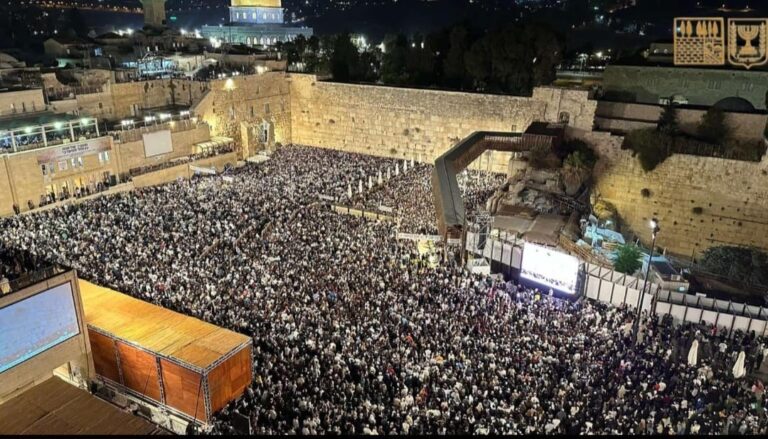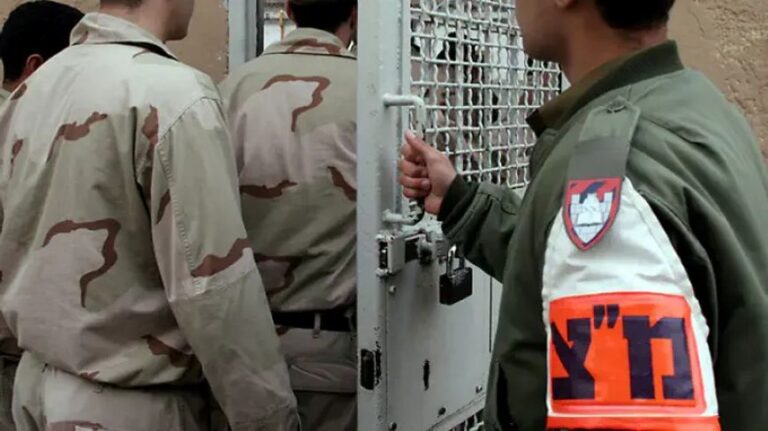 The following is a Bloomberg News report:
The following is a Bloomberg News report:
Yemen is in danger of losing what’s left of its Jewish community, which has called the country home for more than 2,500 years and provided its kings for a century.
Growing intimidation and violence are pushing the 300 Jews left in the Arabian Peninsula country to flee to Israel or the U.S. Four months ago, a Muslim extremist gunned down Jewish- studies teacher Moshe Yaish Nahari, a father of nine, in the town of Raida, north of the capital of Sana’a.
“If the government doesn’t protect us, Jews will be in danger,” said Rabbi Yahya Yousef Mousa, who leads the 65-person Jewish community in Sana’a. The group arrived there two years ago after escaping threats in its home region in northern Yemen.
About 7,000 Jews live in Arab countries, down from more than 750,000 before Israel was created in 1948. Yemen, with the third-largest community after Morocco and Tunisia, has become a more hostile place for Jews since Israel’s January invasion of the Gaza Strip.
“Because of the deteriorating security situation, the Yemeni Jewish community as opposed to others in the Arab world is in need of making very serious decisions regarding their future,” said Yehudit Barsky, a Middle East expert at the American Jewish Committee, a New York-based advocate for Jewish rights. “From a historical perspective, it’s a sad situation. They have lived there for so long.”
Blood Money
Yemeni Jews say they fear more violence after a Raida court in February ordered Nahari’s convicted killer to pay blood money of 5.5 million riyals ($27,500), sparing him the death sentence.
“This kind of verdict encourages other people to attack Jews,” Rabbi Mousa, 30, said at a guarded compound in Sana’a, where armed security personnel stationed at an entrance barrier checked all vehicles.
The first Jews arrived in Yemen at about the time of the 586 B.C destruction of the First Temple in Jerusalem. About 1,000 years later, the Himyari ruling family converted to Judaism; Jewish rule in Yemen lasted until 525 A.D., when Christians from Ethiopia took over.
Of the more than 50,000 Jews in Yemen last century, most emigrated in Operation Magic Carpet, in airlifts organized by Israel in 1949-1950 after anti-Jewish riots. Two smaller waves of emigration involving 1,700 Jews took place in the mid 1960s and the early 1990s.
Israel’s Gaza offensive touched off more anti-Israeli protests in Yemen, where the population is almost entirely Muslim. In Raida, home to most of Yemen’s Jews, Muslims pelted Jews with stones. Community members rarely venture out of their homes now and the two schools and two synagogues are closed.
Headed to Israel
In late February, one of the leaders of the Raida community, Said Ben Yisrael, emigrated to Israel with eight family members. Several weeks before, an explosive device had been thrown into his courtyard and detonated.
Nahari’s nephew, Efrayim, is now trying to get passports for another 70 Jews so they can leave the country, he said.
A clean-shaven 23-year-old, dressed in a black leather jacket and jeans, Efrayim represented the community last month in talks about the passports with the Interior Ministry in Sana’a. Officials told him that a computer malfunction meant the documents couldn’t be issued.
The Jewish Agency for Israel, which organizes immigration from the Jewish diaspora, said last month in a report on Yemen’s Jews that it is working with the U.S. State Department to pressure the Yemeni government for passports and visas.
Al-Qaeda
The threat to Jews has gotten worse in recent years as Islamic extremism and al-Qaeda has gained ground in Yemen, the poorest Arab nation and a neighbor of Saudi Arabia, Barsky said.
Judge Hamoud Abdul Hameed al-Hitar, Yemen’s religious- affairs minister, described Yemeni Jews as “Yemenis first, Jews second,” with the same rights and duties. The outcome of the murder case didn’t signify discrimination, he said.
“If they leave their houses in Yemen, they will go to Israel and invade houses that are not theirs,” he said in an interview.
Police aren’t guarding Raida’s Jews, said Nahari.
“Are they waiting for more killings?” he said. “Are they waiting for more murdered Jews to give us our passports?”
The capital, until 1948 home to a thriving Jewish quarter with craftsmen such as goldsmiths and silversmiths, has no synagogues or Jewish schools.
The families that fled their northern homes are under government protection in the Sana’a compound, where a dozen or more people are crammed into each apartment. The authorities cut off monthly support of about $300 a month per family in January without explanation.
Harassment escalated after the murder in Raida and verdict, said Rabbi Mousa, dressed in a white Yemeni robe and skullcap.
“We received a lot of threats afterwards, saying we will kill you and collect blood money,” he said.
Sitting on a cushion on the floor while a man next to him reached into a plastic bag for qat, the leaf narcotic chewed by Yemenis, the rabbi said he has no wish to go to Israel: “Yemen is our home and we don’t want to leave it.”
(LINK to article)











3 Responses
May this be the sign of the gathering of Klal Yisroel from the four corners of the world. Amen!
“If the government doesn’t protect us, Jews will be in danger,” said Rabbi Yahya Yousef Mousa
IS THIS RAV FOR REAL? What country expends time, effort, money to actively protect Jews? This is absurd, Yemen is Muslimland–hatred to the Jew is rampart. Get with the system and pack your bags!!!
#2 relax. Do you think its as simple and easy as going from New York to New Jersey? Besides for that, they were there for generation after generation!Its easy to talk when your not in their shoes and when your enjoing your comfortability here in America. Why are you attacking the Rav ?! If you are a little familiar with whats going on ,yes, there are plenty of places here in America and even in New york in which extra money, effort,and time is spent by the government to protect Jewish schools, institutions and shuls.